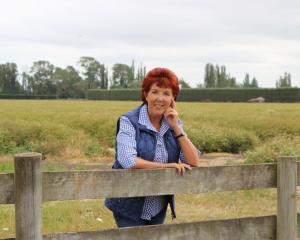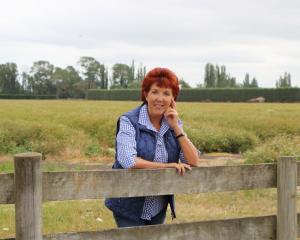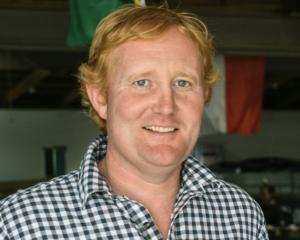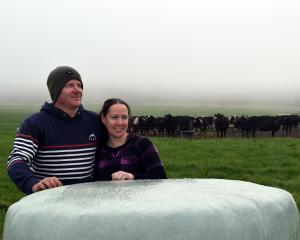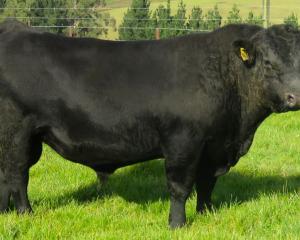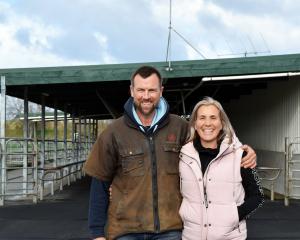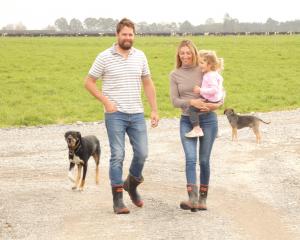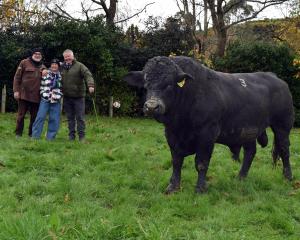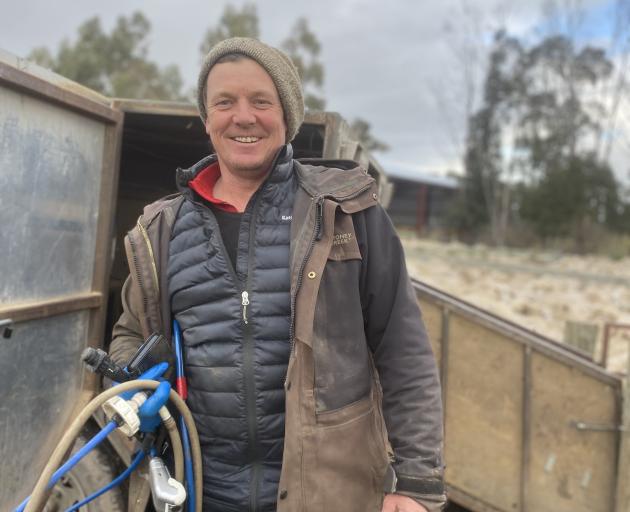
The sheep and beef farmer leases a farm at Waihao Downs near Waimate in South Canterbury and for around two months of the year he travels mostly around Otago pregnancy scanning ewes.
Sheep scanning marks the halfway mark in the season for sheep farmers. The hard work to get ewes into good condition post weaning and back in lamb has been done and Mr Flett’s scanning result determines how a farmer will manage his mobs. Generally, he scans for multiples, singles, lates and dries.
Mr Flett has been in the scanning game for "seven or eight" years. He spent his early years on the Taieri where his father was a dairy farmer before they moved to Ashburton.
Mr Flett loved hunting and the great outdoors and knew farming was the occupation for him. He worked as shepherd and a casual musterer and also dabbled in dairying before he and his wife Sarah got into an equity partnership with stock and leased a farm off business partners Simon and Kelly Cooney. They later bought the second half of the stock shares and have remained leasing the Cooney’s farm. The farm is an intensive 220ha with 90ha under irrigation.
Initially the couple got into the sheep scanning work as a means to save money and one day buy a farm, "but these days to be fair, alongside the farm, it’s sufficient to get us through the year and pay for the kids’ boarding school. Maybe once they have left home, we might find we have a spare dollar or two to put away and get a lifestyle block or something".
Many of Mr Flett’s clients have come through his connections to dog trialling and word of mouth. The work has him away from home for almost every night of the week for a solid two months through mid-June, July and into August. Mrs Flett is at home shifting stock breaks and feeding out to their 1300 breeding ewes and wagyu cattle grazers.
"Sarah keeps things pretty right at home while I am away. I am lucky to have her, she is big part of what we do; I couldn’t be away scanning if she wasn’t happy to run the farm."
Scanning is not a job for the faint-hearted, Mr Flett conceded.
"The first four years I found quite challenging; I was sweating the entire day just wanting to make sure I was getting every ewe absolutely right. A lot rides on the scanning result for the farmer, and how the mobs are managed. You do need to have a thick skin as sometimes you do inevitably get it wrong," he said.
"I have got my head around it now and developed an eye for it, so I have been able to enjoy it a bit more."
He has also secured a solid list of good clients and he looks forward to returning each year and seeing the progress they make.
"I enjoy talking to them about their systems and I have gained a lot of knowledge for my own farming business too. Most clients who have a poor scanning result are half expecting it and will generally know where things have gone wrong before I turn up," he said.
Being self-employed in an intensive and seasonal business such as pregnancy scanning, the scanner is expected to turn up and get the job done no matter what else might be happening in their life. Mr Flett saw this first-hand three years ago when his father died in a recreational boating accident in late July. "I got a call at 4am telling me Dad had died and I was in the trailer scanning sheep at 7am. It wasn’t pretty, the last few weeks after that were terrible really, but the reality was the sheep needed to be scanned. I just had to get on with it and get the job done."
Mr Flett’s advice for young guys starting out: "Don’t give up your day job."
An intensive and busy season, Mr Flett said scanning contractors need a "plan B" for when the season finishes up.
"And you need to have the hide of a rhino if you want to make it, as you will get crucified in the first season or two as you develop an eye for it — but there’s no other way around it," he said.
By Alice Scott




